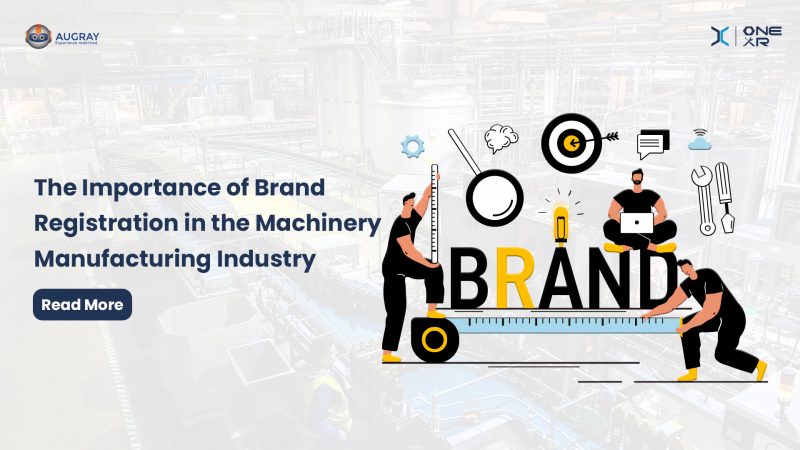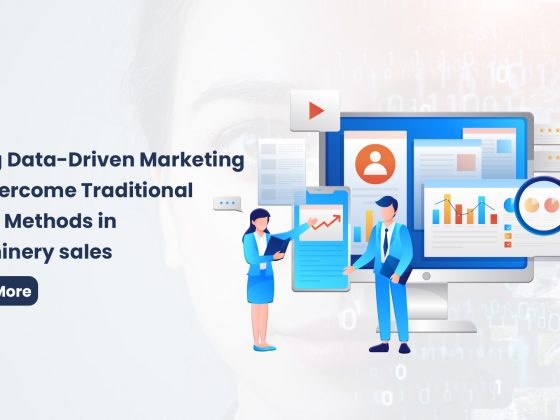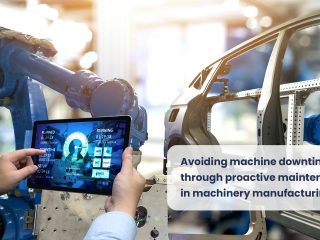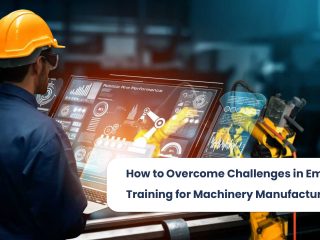The machinery manufacturing industry is a critical sector of the global economy, providing equipment and systems for industries such as agriculture, construction, energy, and transportation. As a highly competitive and innovative industry, machinery manufacturers must differentiate themselves from competitors and establish their brands in the market.
One way to achieve this is through brand registration, which provides legal protection and exclusivity for their intellectual property. In this article, we will explore the importance, advantages, and strategies of brand registration in the machinery manufacturing industry.
Protecting Intellectual Property
As already mentioned, one of the primary benefits of brand registration is the protection of intellectual property. By registering a brand, a machinery manufacturer establishes exclusive rights over it, and no other entity can use it without permission.
The machinery manufacturing industry is highly competitive, and many companies are always looking for ways to get ahead. With brand registration, companies can protect their trademarks, logos, and slogans from infringers who may use them for their own gain. It is essential to protect intellectual property as it represents a significant investment, and companies can lose their competitive edge if their brand is copied by competitors.
Brand registration makes it easier for manufacturers to take legal action against infringers if they find anyone using their intellectual property without permission. Legal action can be costly, but it is necessary to protect the company’s interests and prevent infringers from taking away the company’s market share.
Example: Caterpillar Inc., the leading manufacturer of construction and mining equipment, has registered its brand name and logo to protect its intellectual property rights.
Building Brand Awareness
Brand registration is essential in building brand awareness in the machinery manufacturing industry. Customers are more likely to purchase a product that they are familiar with and trust. By registering a brand, machinery manufacturers establish a unique identity that differentiates them from their competitors.
Customers can identify and choose the company’s products with ease, which leads to increased sales and revenue. A strong brand image also enhances customer loyalty, as customers associate the brand with quality, reliability, and innovation.
Example: John Deere, the leading manufacturer of agricultural machinery, has built its credibility over the years by registering its brand name and logo in several countries worldwide.
Enhancing Brand Value
Brand registration enhances the value of a brand by providing legal protection and exclusivity. This makes the brand more attractive to potential investors, partners, and customers, thereby increasing the company’s valuation. A registered brand also makes it easier for machinery manufacturers to license or franchise their brands, generating additional revenue streams.
A strong brand also reduces the company’s marketing costs as it has already established its identity and reputation. Customers are more likely to purchase a product from a well-known brand, which reduces the need for extensive marketing campaigns.
Example: Komatsu, a leading manufacturer of construction equipment, has registered its brand name and logo to increase its brand value and attract more investors.
Facilitating Export and International Expansion
Brand registration is essential in facilitating export and international expansion for machinery manufacturers. By registering their brands in different countries, companies can establish a global presence and protect their intellectual property rights in foreign markets.
This makes it easier to sell their products and services to customers worldwide and expand their businesses beyond their domestic markets. A strong brand also enhances the company’s reputation, making it more attractive to potential partners and customers in foreign markets.
Example: Hitachi Construction Machinery, a leading manufacturer of construction equipment, has registered its brand name and logo in several countries worldwide to facilitate international expansion.
Strengthening Brand Reputation
Brand registration strengthens the reputation of machinery manufacturers by ensuring that their brands are associated with quality, reliability, and innovation. By protecting their intellectual property and maintaining consistent branding, companies can build trust and loyalty among customers and stakeholders, enhancing their reputation in the market.
A strong reputation is essential in the machinery manufacturing industry, as customers are always looking for high-quality and reliable products. A strong brand also reduces the risk of negative publicity, as the company has established its identity and reputation.
Example: JCB, a leading manufacturer of construction equipment, has registered its brand name and logo to establish ownership and protect its brand from infringement.
Enabling Brand Licensing and Franchising
Brand registration enables machinery manufacturers to license or franchise their brands to other businesses. By licensing their brands, companies can earn royalties or fees from other companies that want to use their intellectual property. By franchising their brands, companies can expand their businesses through a network of independently owned and operated franchises.
Brand licensing and franchising are an excellent way for companies to generate additional revenue streams and expand their businesses without incurring significant costs. It also enables the company to establish its brand in new markets and territories, enhancing its reputation and market share.
Registering a brand in the machinery manufacturing industry can yield significant benefits such as legal protection, increased market share, enhanced brand value, and competitive advantage.
Legal Protection
One of the primary benefits of brand registration in the machinery manufacturing industry is legal protection. Registering a brand name, logo, or symbol provides legal protection against infringement by third parties, ensuring that competitors cannot use a similar brand name, logo, or symbol to deceive customers. Legal protection also enables machinery manufacturers to take legal action against infringers and seek damages for lost revenue, reputation damage, and other losses incurred due to infringement.
For instance, Caterpillar Inc. is a global machinery manufacturer that registered its brand name, logo, and symbol with the United States Patent and Trademark Office (USPTO). Caterpillar has filed numerous lawsuits against infringers, including a lawsuit against a Chinese machinery manufacturer, Shandong Shantui Construction Machinery Co. Ltd, for infringing on its trademark by using a similar logo and brand name. The legal action resulted in Shandong Shantui Construction Machinery Co. Ltd. changing its brand name and logo, ensuring that Caterpillar’s brand identity was protected.
Increased Market Share
Brand registration in the machinery manufacturing industry can also result in increased market share. A registered brand name, logo, or symbol can attract more customers, as it communicates trust, quality, and reliability, creating customer loyalty. A registered brand name can also make it easier for machinery manufacturers to enter new markets, as it provides a recognizable identity that customers can trust.
For example, Komatsu Ltd., a global machinery manufacturer, registered its brand name, logo, and symbol with the USPTO, resulting in increased market share in the United States. The registration allowed Komatsu to expand its market share in the United States, where it was previously a relatively unknown brand, by communicating its quality, reliability, and trustworthiness through its registered brand identity.
Enhanced Brand Value
Brand registration in the machinery manufacturing industry can also enhance brand value. A registered brand name, logo, or symbol is a valuable asset that can increase a company’s overall value. A registered brand identity communicates to investors and customers that the company is committed to quality and reliability, enhancing its perceived value.
For instance, the John Deere brand, a leading global machinery manufacturer, is registered with the USPTO, contributing to its overall brand value. John Deere’s brand registration has allowed it to communicate its quality, reliability, and trustworthiness to customers and investors, increasing its brand value and resulting in higher market share and revenue.
Competitive Advantage
Finally, brand registration in the machinery manufacturing industry can provide a competitive advantage. A registered brand identity can differentiate a company’s products or services from those of its competitors, creating a unique selling proposition that sets it apart from the competition. A registered brand identity can also attract new customers and retain existing customers, resulting in increased market share and revenue.
For example, the Caterpillar brand, a leading global machinery manufacturer, is registered with the USPTO, providing it with a competitive advantage. Caterpillar’s registered brand identity communicates its quality, reliability, and trustworthiness to customers, resulting in increased market share and revenue, and providing a competitive advantage over its competitors.
Brand registration is a critical component of building and protecting a brand in the machinery manufacturing industry. By registering their brands, machinery manufacturers can protect their intellectual property, build brand awareness and value, facilitate export and international expansion, strengthen their reputation, and enable brand licensing and franchising.
The process of brand registration involves conducting a trademark search, choosing a filing basis, filing a trademark application, waiting for examination, publication for opposition, receiving a certificate of registration, and maintaining your brand registration. With a registered brand, machinery manufacturers can distinguish themselves in a competitive market and establish themselves as leaders in their industry.









